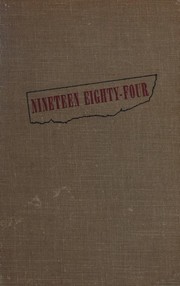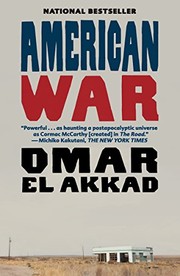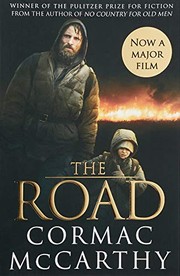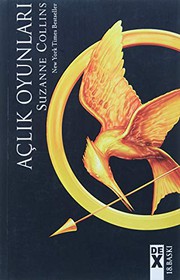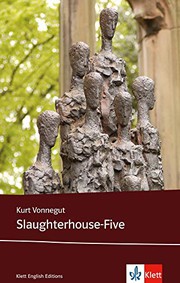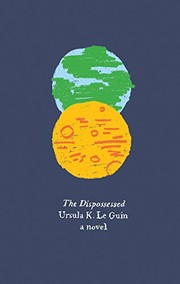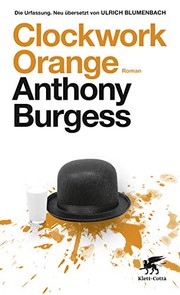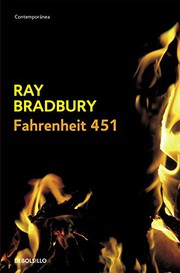Home >
Profile
>
gareth
>
Lists
Dystopian Fiction
No review for Nineteen Eighty-Four
No review for American War
The Hunger Games is a 2008 dystopian novel by the American writer Suzanne Collins. It is written in the perspective of 16-year-old Katniss Everdeen, who lives in the future, post-apocalyptic nation of Panem in North America. The Capitol, a highly advanced metropolis, exercises political control over the rest of the nation. The Hunger Games is an annual event in which one boy and one girl aged 12–18 from each of the twelve districts surrounding the Capitol are selected by lottery to compete in a televised battle royale to the death.
The book received critical acclaim from major reviewers and authors. It was praised for its plot and character development. In writing The Hunger Games, Collins drew upon Greek mythology, Roman gladiatorial games, and contemporary reality television for thematic content. The novel won many awards, including the California Young Reader Medal, and was named one of Publishers Weekly's "Best Books of the Year" in 2008.
The Hunger Games was first published in hardcover on September 14, 2008, by Scholastic, featuring a cover designed by Tim O'Brien.
No review for Slaughterhouse-Five
No review for The Dispossessed
When Bill Masen wakes up blindfolded in hospital there is a bitter irony in his situation. Carefully removing his bandages, he realizes that he is the only person who can see: everyone else, doctors and patients alike, have been blinded by a meteor shower. Now, with civilization in chaos, the triffids - huge, venomous, large-rooted plants able to 'walk', feeding on human flesh - can have their day.The Day of the Triffids, published in 1951, expresses many of the political concerns of its time: the Cold War, the fear of biological experimentation and the man-made apocalypse. However, with its terrifyingly believable insights into the genetic modification of plants, the book is more relevant today than ever before.
[Comment by Liz Jensen on The Guardian][1]:
> As a teenager, one of my favourite haunts was Oxford's Botanical Gardens. I'd head straight for the vast heated greenhouses, where I'd pity my adolescent plight, chain-smoke, and glory in the insane vegetation that burgeoned there. The more rampant, brutally spiked, poisonous, or cruel to insects a plant was, the more it appealed to me. I'd shove my butts into their root systems. They could take it. My librarian mother disapproved mightily of the fags but when under interrogation I confessed where I'd been hanging out – hardly Sodom and Gomorrah – she spotted a literary opportunity, and slid John Wyndham's The Day of the Triffids my way. I read it in one sitting, fizzing with the excitement of recognition. I knew the triffids already: I'd spent long hours in the jungle with them, exchanging gases. Wyndham loved to address the question that triggers every invented world: the great "What if . . ." What if a carnivorous, travelling, communicating, poison-spitting oil-rich plant, harvested in Britain as biofuel, broke loose after a mysterious "comet-shower" blinded most of the population? That's the scenario faced by triffid-expert Bill Masen, who finds himself a sighted man in a sightless nation. Cataclysmic change established, cue a magnificent chain reaction of experimental science, physical and political crisis, moral dilemmas, new hierarchies, and hints of a new world order. Although the repercussions of an unprecedented crisis and Masen's personal journey through the new wilderness form the backbone of the story, it's the triffids that root themselves most firmly in the reader's memory. Wyndham described them botanically, but he left enough room for the reader's imagination to take over. The result being that everyone who reads The Day of the Triffids creates, in their mind's eye, their own version of fiction's most iconic plant. Mine germinated in an Oxford greenhouse, in a cloud of cigarette smoke.
[1]: http://www.guardian.co.uk/books/2011/may/14/science-fiction-authors-choice
A Clockwork Orange is a dystopian satirical black comedy novel by English writer Anthony Burgess, published in 1962. It is set in a near-future society that has a youth subculture of extreme violence. The teenage protagonist, Alex, narrates his violent exploits and his experiences with state authorities intent on reforming him. The book is partially written in a Russian-influenced argot called "Nadsat", which takes its name from the Russian suffix that is equivalent to '-teen' in English. According to Burgess, it was a jeu d'esprit written in just three weeks.
In 2005, A Clockwork Orange was included on Time magazine's list of the 100 best English-language novels written since 1923, and it was named by Modern Library and its readers as one of the 100 best English-language novels of the 20th century. The original manuscript of the book has been kept at McMaster University's William Ready Division of Archives and Research Collections in Hamilton, Ontario, Canada since the institution purchased the documents in 1971. It is considered one of the most influential dystopian books.
----------
Also contained in:
[A Clockwork Orange and Honey for the Bears](https://openlibrary.org/works/OL23787405W)
[A Clockwork Orange / The Wanting Seed](https://openlibrary.org/works/OL17306508W)
Fahrenheit 451 is a 1953 dystopian novel by American writer Ray Bradbury. Often regarded as one of his best works, the novel presents a future American society where books are outlawed and "firemen" burn any that are found. The book's tagline explains the title as "'the temperature at which book paper catches fire, and burns": the autoignition temperature of paper. The lead character, Guy Montag, is a fireman who becomes disillusioned with his role of censoring literature and destroying knowledge, eventually quitting his job and committing himself to the preservation of literary and cultural writings.
The novel has been the subject of interpretations focusing on the historical role of book burning in suppressing dissenting ideas for change. In a 1956 radio interview, Bradbury said that he wrote Fahrenheit 451 because of his concerns at the time (during the McCarthy era) about the threat of book burning in the United States. In later years, he described the book as a commentary on how mass media reduces interest in reading literature.
In 1954, Fahrenheit 451 won the American Academy of Arts and Letters Award in Literature and the Commonwealth Club of California Gold Medal. It later won the Prometheus "Hall of Fame" Award in 1984 and a "Retro" Hugo Award, one of a limited number of Best Novel Retro Hugos ever given, in 2004. Bradbury was honored with a Spoken Word Grammy nomination for his 1976 audiobook version.
----------
Also contained in:
- [451° по Фаренгейту: Рассказы](https://openlibrary.org/works/OL17811384W/Fahrenheit_451_stories)
- [451° по Фаренгейту: повести и рассказы](https://openlibrary.org/works/OL27741633W)
- [Works](https://openlibrary.org/works/OL28185143W)
No review for Brave New World
